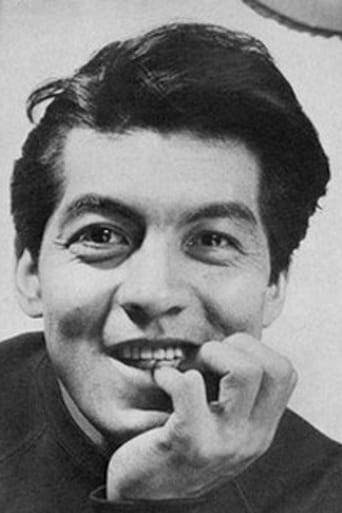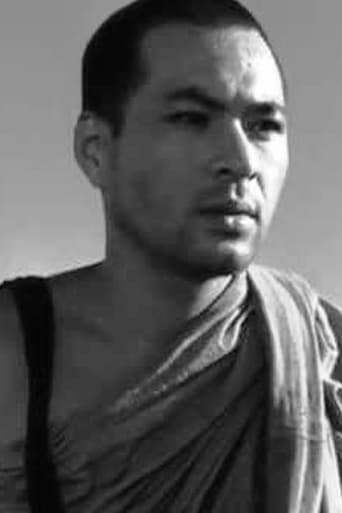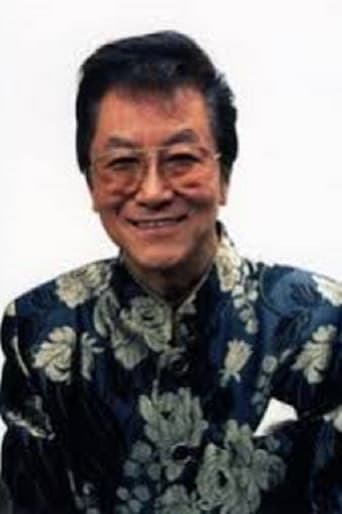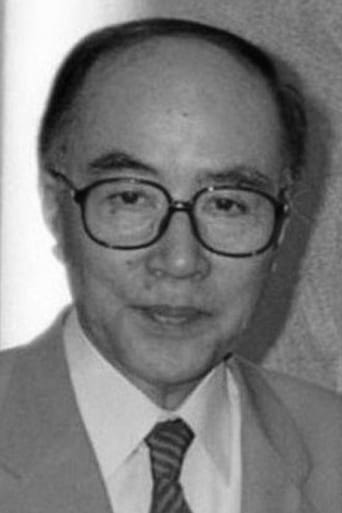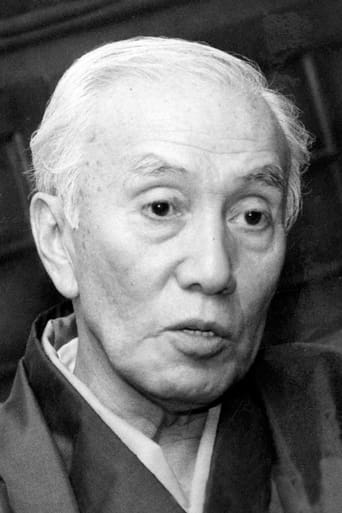Vashirdfel
Simply A Masterpiece
Moustroll
Good movie but grossly overrated
Acensbart
Excellent but underrated film
William Ferguson
This is really a terrific film, one which I saw during my tour of duty at Itazuke AB, Fukuoka, Japan(59-62). I saw it in the "Film Tower," a six-story building, with some eight theaters of different sizes. It seemed the largest one always had John Wayne, and the one adjacent always had a Japanese war film. They were both sold out for every showing. I was twenty- one years old in 1959. It seems to have stood the test of time quite well. I feel the same sense of isolation now as then. Only John Wayne films and the American and Spaghetti Westerns drew larger crowds. There was always a disabled Japanese soldier with an upturned uniform cap and a hand-lettered sign asking for help. I always put something in the hat. Now that I am a disabled combat veteran of Vietnam, I wish it had been more, but I only made $34.00 a pay day. Thank you.
ebiros2
Based on a novel by Michio Takeyama of the same title, Biruma no Tategoto is a beautifully produced movie about the last days of war in Burma. Mizushima is a foot solder in his platoon fighting the Pacific War in Burma against the British and the allied forces. He's with a commander who used to be a musician, and he himself had exceptional music talent as he picked up a Burmese harp and learned to play all by himself. His platoon learns of the ending of the war and Japan's surrender. They surrender to a near by British camp, but about a hundred miles away, he hears that the war is still on going by a troop that hasn't heard the news. Mizushima volunteers to be the messenger to deliver the message to the troop, but the soldiers there are determined to die for the country and refuses to surrender. Mizushima gets injured in the incident, and is brought back to health by a local monk. He then puts on monk's robe as disguise to travel the country undetected. But as he travels, he witnesses the carnage the war has left. This transforms him from a person in guise of a monk to a true monk that feels his mission is to devote himself to the ones who died in the war. The movie is a war movie of a different sort. It's an accurate account of the war mixed with fantastic novel about the people, the circumstances, and the coincidences that connects the story together. Through the transformation of Mizushima, we are shown the tragedy of war, and its senselessness. Never a word against war is spoken in this story, as the characters are all proud men of the Japanese army, but it conveys the message that war is wrong in the sincerest way.I didn't know that this movie was directed by Kon Ichikawa. This must be one of his early great works. It's a beautiful story like no other, and is sure to leave lasting impression on all who sees it.
MartinHafer
Before I review THE BURMESE HARP, I should point out that I had previously watched another Japanese anti-war film, FIRES ON THE PLAIN ("NOBI"). I mention this because it definitely colored my view of BURMESE HARP, since FIRES did a much better job of conveying the horror of war--so much so that BURMESE HARP seems to pale a bit in comparison. So, if you like the message in BURMESE HARP, then seeing FIRES ON THE PLAIN is an absolute must.This film is set in the final days of WWII. The focus of the film is a small company of Japanese soldiers who are mostly trying to avoid being killed as well as find something to eat. Within this groups is a soldier who is almost like a mascot, as he carries a small harp with him and uses it to raise the morale of these dispirited troops. When they receive word that the war is over, the harpist (Mizushima) volunteers for one last mission--the try to convince some hard-core Japanese soldiers that the war is finished. However, these men don't believe him and soon they are attacked and killed--leaving Mizushima alive but wounded. As he makes his way back to the internment camp where his comrades are being held, he comes upon many war dead--so many that his mind seems to snap. From then on, instead of returning, he decides to don the robes of a Buddhist monk and travel the land burying the dead and dedicating his life to peace.When it comes to the technical aspects of the film, the music is wonderful and gives a rather surreal edge to the movie. Additionally, the cinematography is excellent as well. There is one problem, however, and that is that the film is poorly paced. In other words, while an exceptional film, it probably would have been better had it been trimmed a bit (the Leonard Maltin Guide also stated this--I read its review after I saw the film). I really think the message could have been more powerful had 15 or so minutes of the film had been trimmed--and this is something I rarely feel. Normally, I love longer films.By the way, this isn't so much a criticism of this particular film, but when I saw it I found myself a bit torn. Although many Japanese soldiers suffered and died in the war and it was a great loss, I wondered how many Japanese-made movies talked about the Rape of Nanking, their forcing Korean women to be "comfort women" (i.e., sex slaves) and the wide-spread killing of prisoners of war? If you know of any such films, let me know.
chaos-rampant
A lesson on how NOT to make a picture by one of the most celebrated Japanese directors of all time. I have no other way of explaining the ignominious debacle that is THE BURMESE HARP. This must be Ichikawa's 110 minute masterclass on how NOT to create a story. And it's genius for that.The basis of HARP's story is another return on the widely traveled path of the Hero's Journey. The mentor, the death and resurrection of the hero, the gift he returns with from the other world to bestow upon the world, everything the respectable Joseph Campbell taught can be found here.Where the movie falters is in substituting true dramaturgy and character motivation for saccharine sentimentality. Ichikawa goes straight for the jugular, his intentions to force the drama upon the viewer's emotions instead of letting it derive naturally from the premise and the character orchestration. Conflict, the most surefooted and ancient root in the heart of all storytelling, is forced via jumps in logic or simply produced on demand when the movie requires it.After a decent first 40 minutes and an almost excellent following 30 minutes, the movie proceeds to foreshadow its calamitous conclusion by turning the protagonist, a Japanese soldier turned Buddhist monk, into a sulking child. On his way back from a mission from which he barely survived he has the opportunity to witness the ravages of war firsthand. He returns to the previously appointed gathering point for the surrendered Japanese troops a changed man. Instead of rejoining his platoon to wait for their shipping back to Japan, he runs off and hides from them. His platoon spends the rest of the movie looking out for him, cajoling him and singing when the opportunity provides. Which is pretty darn often.Why did the private run off? Something to do with the harrowing images of unburied Japanese soldiers he saw on his way we understand. Let us make a small jump in logic and assume this is the first time a soldier engaged in war comes across such horrors. What is the specific character motivation that turns him into a sulking child? We never know. Ichikawa probably doesn't either as he has the platoon break out in song every 10 minutes until the final 5 minutes of the movie where he remembers he somehow needs to explain the protagonist's irrational behaviour. At which point the sergeant produces a very convenient letter written by the private, where in, what essentially amounts to little more than a voice-over narration, we are "told" a bunch of utterly vapid and bland clichés regarding "peace", "courage" and "easing the suffering of others".All great ideas to be sure but for the love of god man!! You can't tell us these things, we know already. You have to show, invoke the images and character actions that will enable us to arrive at those selfsame conclusions. Something Ichikawa himself did with the harrowing and soul-destroying FIRES ON THE PLAIN a couple of years later. Stacked against that monumental war drama, The Burmese Harp is feeble and puny, an elegiac ode on humanism that lacks the power of conviction.The black and white cinematography is great, it is after all a visual master of Ichikawa's calibre we're talking about. Is it surprising then that the most gripping sequence of the film is almost entirely silent? Ichikawa delivered his masterpiece with Fires on the Plain and with The Burmese Harp he shows how NOT to make a movie. What else could be expected of any director?


